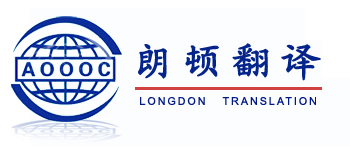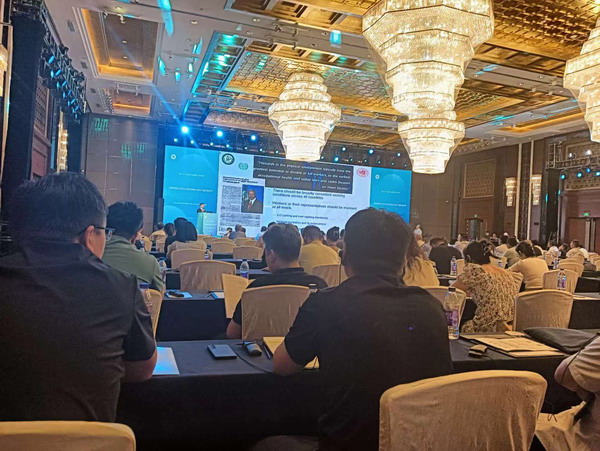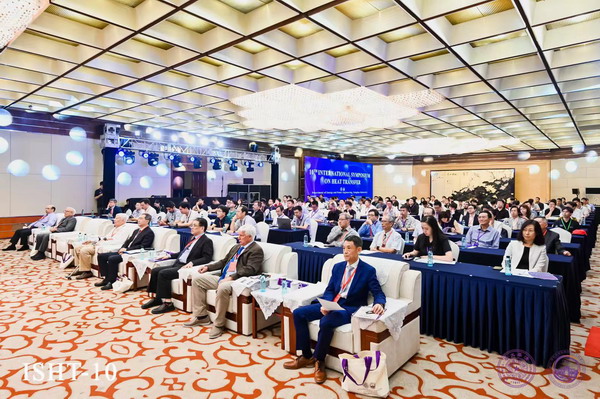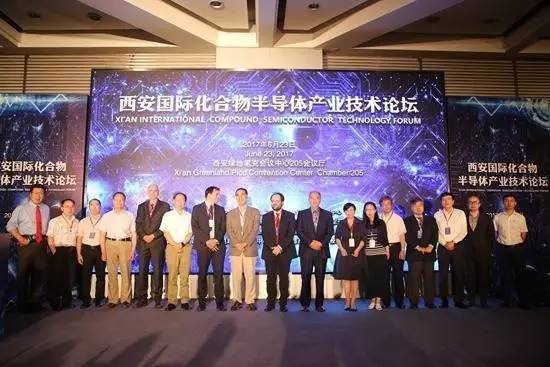At the World Bank Group and International Monetary Fund spring meetings last week in Washington, a central theme was how to accelerate sustainable, inclusive economic growth. But as world leaders seek to reignite the global economy, a large part of the formula for growth and stability is undervalued: the economic empowerment of women.
在最近華盛頓召開的世界銀行集團(tuán)(World Bank Group)和國際貨幣基金組織(IMF)春季會(huì)議上����,一個(gè)中心主題是如何加快可持續(xù)的包容性經(jīng)濟(jì)增長。然而��,就在世界領(lǐng)導(dǎo)人尋求重?zé)ㄈ蚪?jīng)濟(jì)的活力之際����,增長和穩(wěn)定“配方”中的一個(gè)重要部分被低估:女性經(jīng)濟(jì)賦權(quán)。
Only 55 per cent of women participate in the paid labour force globally and they continue to be an untapped source of growth. This is an invaluable asset with proven returns, but we have not invested the resources to unleash women’s full potential. The evidence is overwhelming that supporting women’s economic participation has enormous dividends for families, communities, and whole economies.
在全球范圍內(nèi)�����,只有55%的女性從事有償工作���,她們繼續(xù)是未得到有效開發(fā)的增長來源。這是一項(xiàng)寶貴的資產(chǎn)��,有著得到證實(shí)的回報(bào)����,但我們沒有投入資源來釋放女性的全部潛能��。大量證據(jù)證明����,支持女性參與經(jīng)濟(jì)會(huì)給家庭���、社會(huì)乃至整個(gè)經(jīng)濟(jì)帶來巨大好處����。
Research by the World Bank Group, the IMF, the OECD, and private sector studies concludes that we can add billions to the global economy by creating an enabling environment, increasing women’s labour force participation and business ownership, and improving the productivity of their work. These actions also grow national economies and make countries more competitive. Closing gender gaps makes sense at the macroeconomic level and also at the company level. Research shows a correlation between the number of women on boards and higher corporate profits.
世界銀行集團(tuán)的研究、IMF��、經(jīng)合組織(OECD)以及私營部門的研究都得出結(jié)論認(rèn)為,通過創(chuàng)造支持的環(huán)境,提高女性勞動(dòng)參與率和企業(yè)所有權(quán)����,并提高她們?cè)诠ぷ髦械纳a(chǎn)率�,我們能夠使全球經(jīng)濟(jì)規(guī)模擴(kuò)大數(shù)十億美元。這些行動(dòng)還有助于發(fā)展國民經(jīng)濟(jì)����,提升國家競(jìng)爭(zhēng)力��。無論是在宏觀經(jīng)濟(jì)還是在公司層面���,消除性別差距都是有意義的。研究顯示,董事會(huì)的女性數(shù)量以及更高的企業(yè)利潤之間存在關(guān)聯(lián)����。
Beyond the economic impact, studies show that women tend to allocate more of their income to food, healthcare and education — in short, goods that benefit their children and have multiplier effects for generations.
除了經(jīng)濟(jì)影響,研究還顯示�����,女性往往會(huì)把更多的收入用來購買食品�、醫(yī)療和教育——簡(jiǎn)言之����,這些購買有利于她們的子女,對(duì)后代具有乘數(shù)效應(yīng)���。
Yet despite overwhelming evidence of the benefits of investing in female entrepreneurs and women in the workplace, progress has stalled. The World Economic Forum’s 2016 Global Gender Gap Report estimated that achieving economic parity between genders could take 170 years. That is unacceptable.
然而�,盡管大量證據(jù)證明投資于女性企業(yè)家和女性員工是有好處的�,但實(shí)際進(jìn)展陷入停滯��。世界經(jīng)濟(jì)論壇(WEF)的《2016年全球性別差距報(bào)告》(Global Gender Gap Report)估計(jì)����,實(shí)現(xiàn)性別之間的經(jīng)濟(jì)平等可能要花費(fèi)170年。這是不可接受的。
World Bank Group research shows that female-owned enterprises make up only 38 per cent of formal small and medium enterprises in emerging markets. Among women who have started businesses, only 10 per cent have access to the capital they need to grow them.
世界銀行集團(tuán)的研究顯示�,在新興市場(chǎng),由女性所有的正規(guī)中小企業(yè)僅占總數(shù)的38%���。在創(chuàng)辦企業(yè)的女性中�����,只有10%能夠獲得企業(yè)擴(kuò)張所需的資金。
From a global standpoint, female entrepreneurs are further disadvantaged by legislation impeding women’s economic opportunities, restricting them from certain professions, preventing them from travelling, and constraining their ability to inherit or own land. Women-owned enterprises are concentrated in a narrower range of sectors, largely those with lower profit margins and export potential.
從全球視角看�����,阻礙女性經(jīng)濟(jì)機(jī)遇的立法讓女性企業(yè)家進(jìn)一步處于不利局面�����,這些立法限制女性進(jìn)入某些職業(yè)�,阻礙她們旅行�����,制約她們繼承或擁有土地的能力。由女性所有的企業(yè)集中在較少的行業(yè)���,基本上是那些利潤率和出口潛力都較低的行業(yè)�����。
This week Angela Merkel, Germany’s chancellor, hosts the W20 summit in Berlin, focusing on promoting women’s economic empowerment as an integral part of the G20 agenda.
最近��,德國總理安格拉?默克爾(Angela Merkel)主持了在柏林召開的20國集團(tuán)(G20)婦女峰會(huì)(即W20峰會(huì)),此次峰會(huì)聚焦于推動(dòng)女性經(jīng)濟(jì)賦權(quán),作為G20議程不可分割的一部分����。
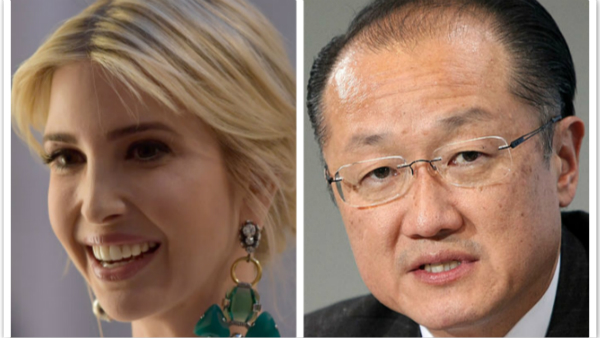
We know what works. We need to increase access to finance, redistribute care work,accelerate progress to financial inclusion, and offer programmes that train femaleentrepreneurs and help them access higher value markets. We need to develop new legal andregulatory frameworks to boost women’s growth and productivity. The right skills trainingenhances women’s capacity to manage their businesses. And mentorship opportunities andaccess to networks bring learning opportunities and connections to capital and markets.
我們知道哪些措施有效。我們需要擴(kuò)大融資渠道、重新分配護(hù)理工作、加快朝向金融包容的進(jìn)展��,以及推出相關(guān)計(jì)劃,培訓(xùn)女企業(yè)家�����,并幫助她們打入更高價(jià)值的市場(chǎng)。我們需要制定新的法律和監(jiān)管框架,促進(jìn)女性的成長并提高生產(chǎn)率。正確的技能培訓(xùn)會(huì)增強(qiáng)女性管理企業(yè)的能力����。而輔導(dǎo)機(jī)會(huì)和加入網(wǎng)絡(luò)會(huì)帶來學(xué)習(xí)機(jī)會(huì)����,開啟通向資本和市場(chǎng)的大門���。
Groups like the W20, the World Economic Forum, World Bank, and the UN Secretary-General’shigh-level panel on women’s economic empowerment have been instrumental in reinforcing thecase for investing in women, identifying effective solutions. Policy leaders, executives,economists, and other academics all agree that one of the most powerful ways to grow theglobal economy is to expand the role of women in business.
W20峰會(huì)����、世界經(jīng)濟(jì)論壇�����、世界銀行和聯(lián)合國(UN)秘書長有關(guān)女性經(jīng)濟(jì)賦權(quán)的高層委員會(huì)等組織�,對(duì)于強(qiáng)調(diào)投資于女性�、找出有效解決方案的理由起著重要作用��。政策領(lǐng)導(dǎo)者���、高管�����、經(jīng)濟(jì)學(xué)家和其他學(xué)者都認(rèn)為��,促進(jìn)全球經(jīng)濟(jì)增長的最強(qiáng)大途徑之一是擴(kuò)大女性在商界的角色���。
Our challenge now is to work together — in public and private sectors — to move decisivelyto invest in women worldwide.
我們現(xiàn)在的挑戰(zhàn)是開展合作(無論是在公共部門還是在私營部門)�����,采取果斷行動(dòng)投資于世界各地的女性����。

